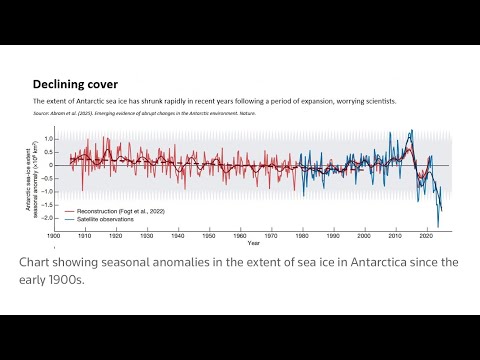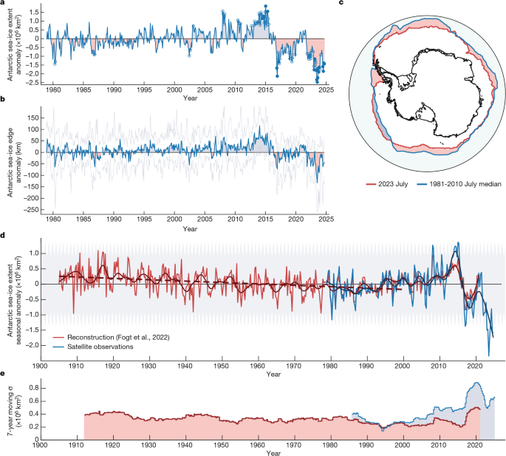See auf Gletscher sprengt Risse in Grönlands Eis
Ein See aus #Schmelzwasser hat laut einer Studie tiefe Risse ins grönländische Eis gesprengt. Abfließendes Wasser hebe einen #Gletscher an, teilte das Forschungsteam des Alfred-Wegener-Instituts (#AWI) aus Bremerhaven mit. Der 79-Grad-Nord-Gletscher zeige erste Anzeichen, instabiler zu werden.
Laut den Wissenschaftlerinnen und Wissenschaftlern geht das grönländische Eis seit Mitte der 1990er Jahre zurück, nur noch drei schwimmende Zungen sind übrig. Eine davon ist der #79GradNordGletscher. Auf der Oberfläche des Gletschers sammelt sich zunehmend Schmelzwasser. Daraus entstand ein See, der heute etwa 21 Quadratkilometer groß ist.
Immer wieder brach Wasser des Sees abrupt durch das Eis und floss über Risse und Schächte ab, wie das Forschungsteam mitteilte. So gelangten enorme Mengen an Wasser an den Rand der Gletscherzunge Richtung Ozean. Die Wissenschaftler beobachteten sieben solcher Entwässerungen, vier davon in den vergangenen fünf Jahren.
Gletscher droht instabiler zu werden
Seit 2019 bilden sich dabei laut AWI besonders auffällige, dreieckige #Bruchfelder im #Eis, die jahrelang sichtbar bleiben. Einige Risse formen Kanäle mit mehreren Dutzend Meter breiten Öffnungen, durch die das Wasser an die Basis des #Eisschild's gelangt. Die Risse und Kanäle verändern sich zwar im Inneren des Eises, bleiben aber lange bestehen. Ob der Gletscher jemals zu seinem früheren Zustand zurückkehrt, ist unklar.
Das Forschungsteam stellte fest, dass Wasser durch die Risse bis unter den Gletscher gelangte. Dort staute sich das Wasser zu einem unterirdischen See. Radarbilder zeigen, dass sich auf diesem See unter dem Eis offenbar eine Blase gebildet hat, die den Gletscher an dieser Stelle nach oben drückt.
https://orf.at/stories/3402602/
#kryosphäre
#TippingPoint
#Kipppunkt
#Grönland



